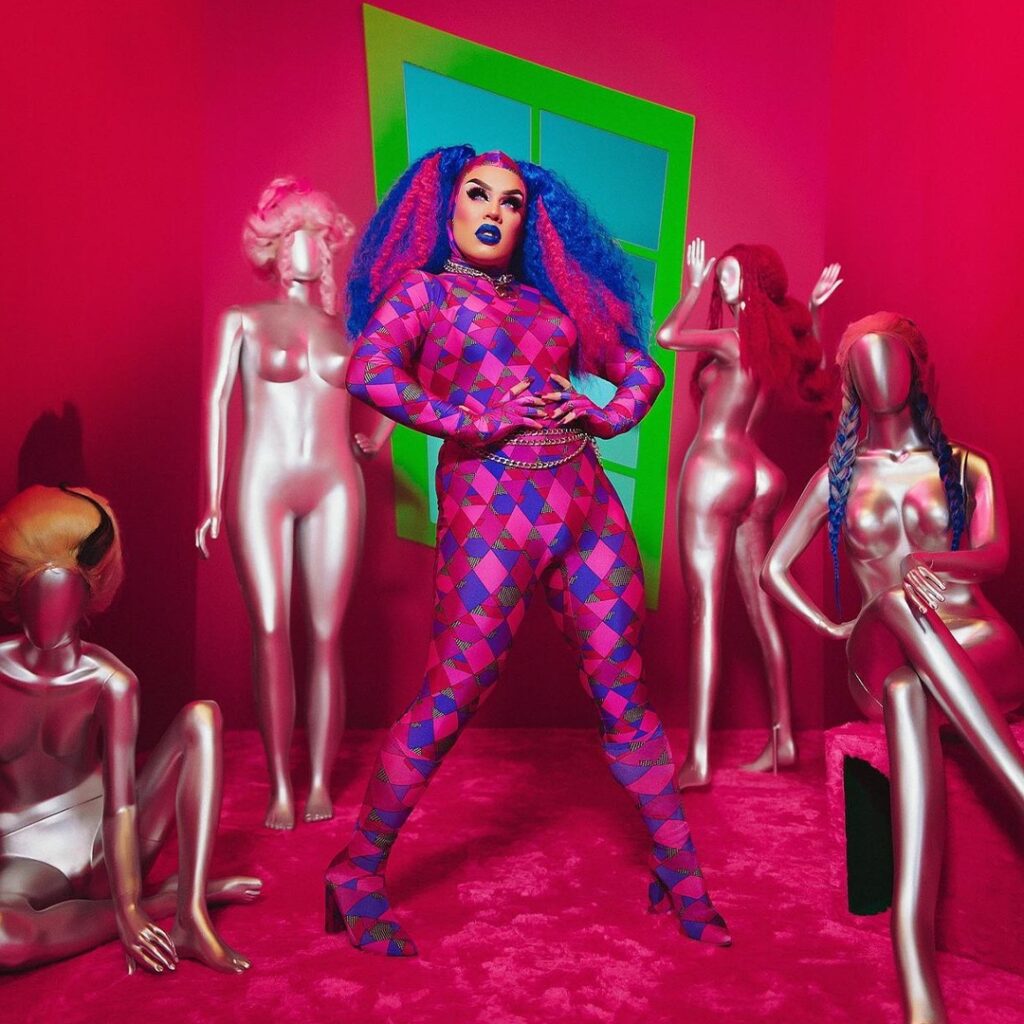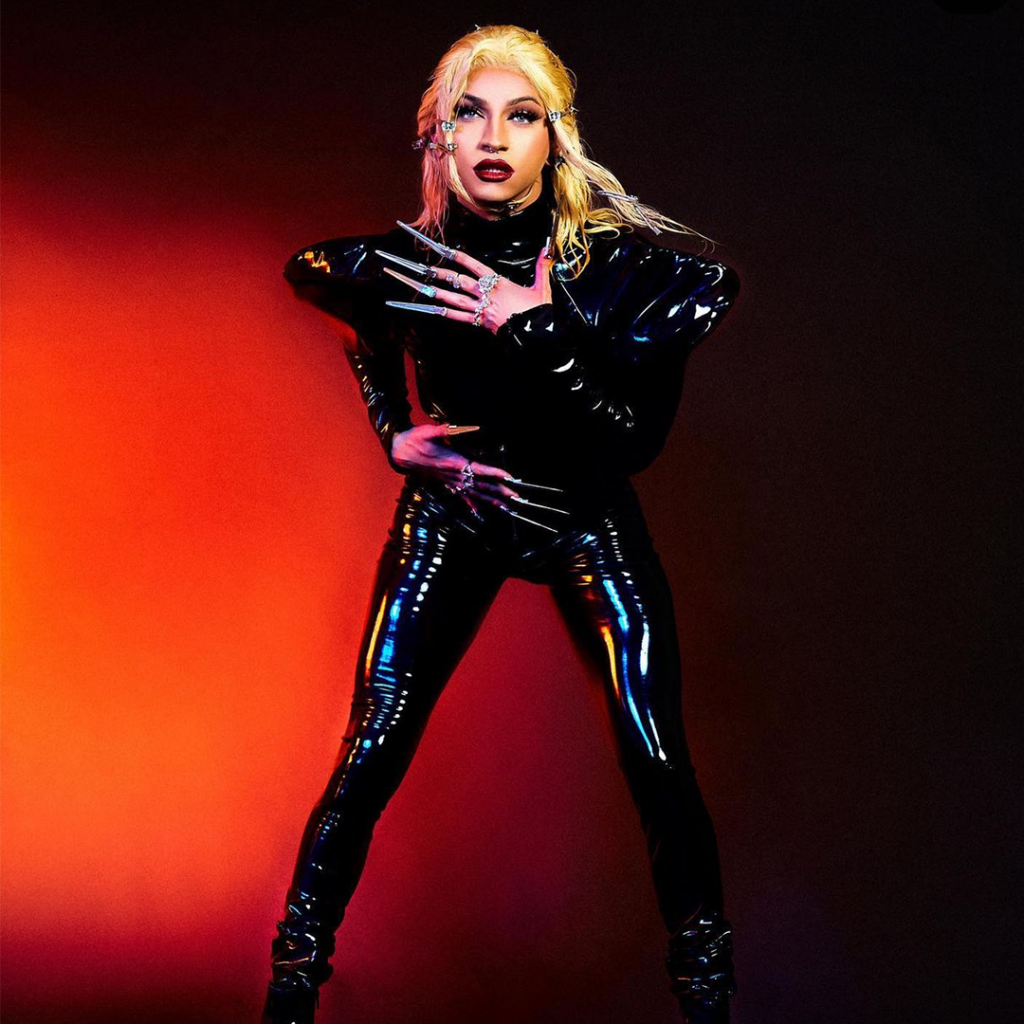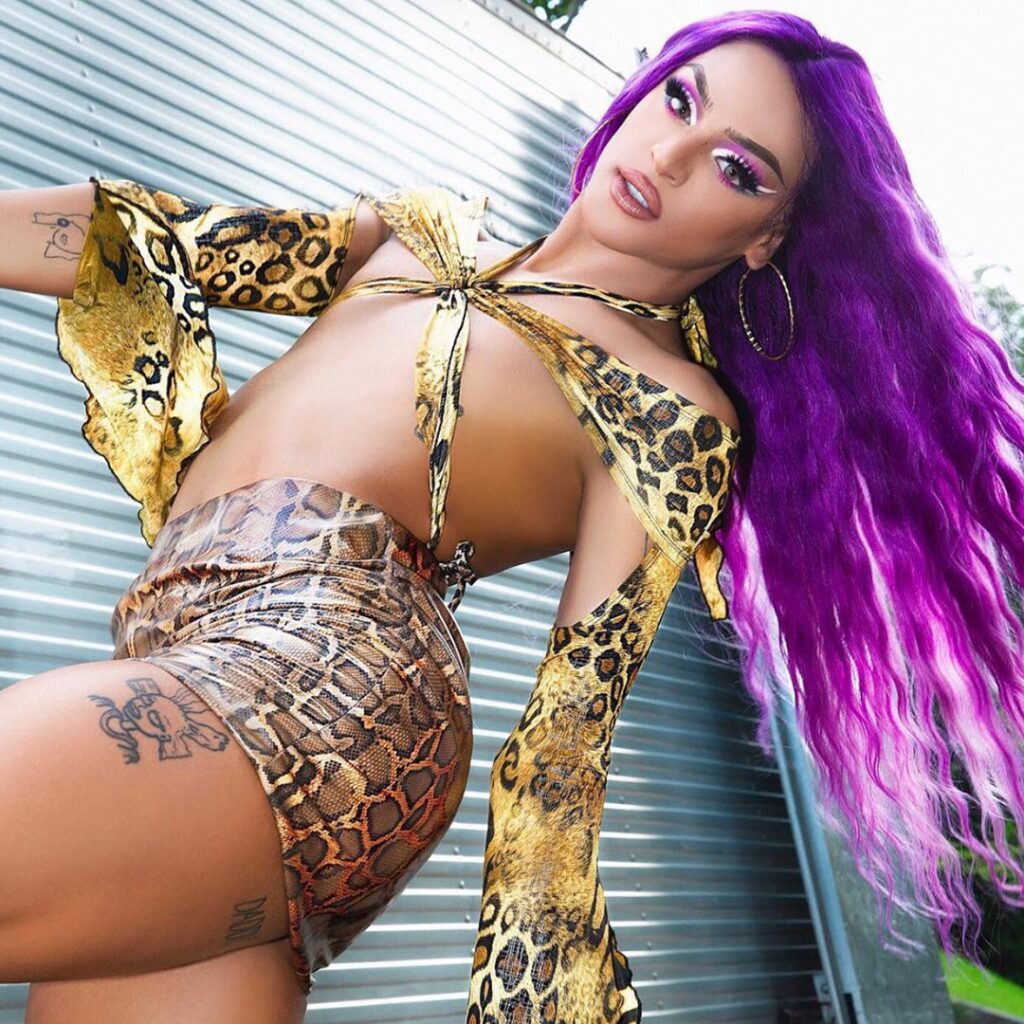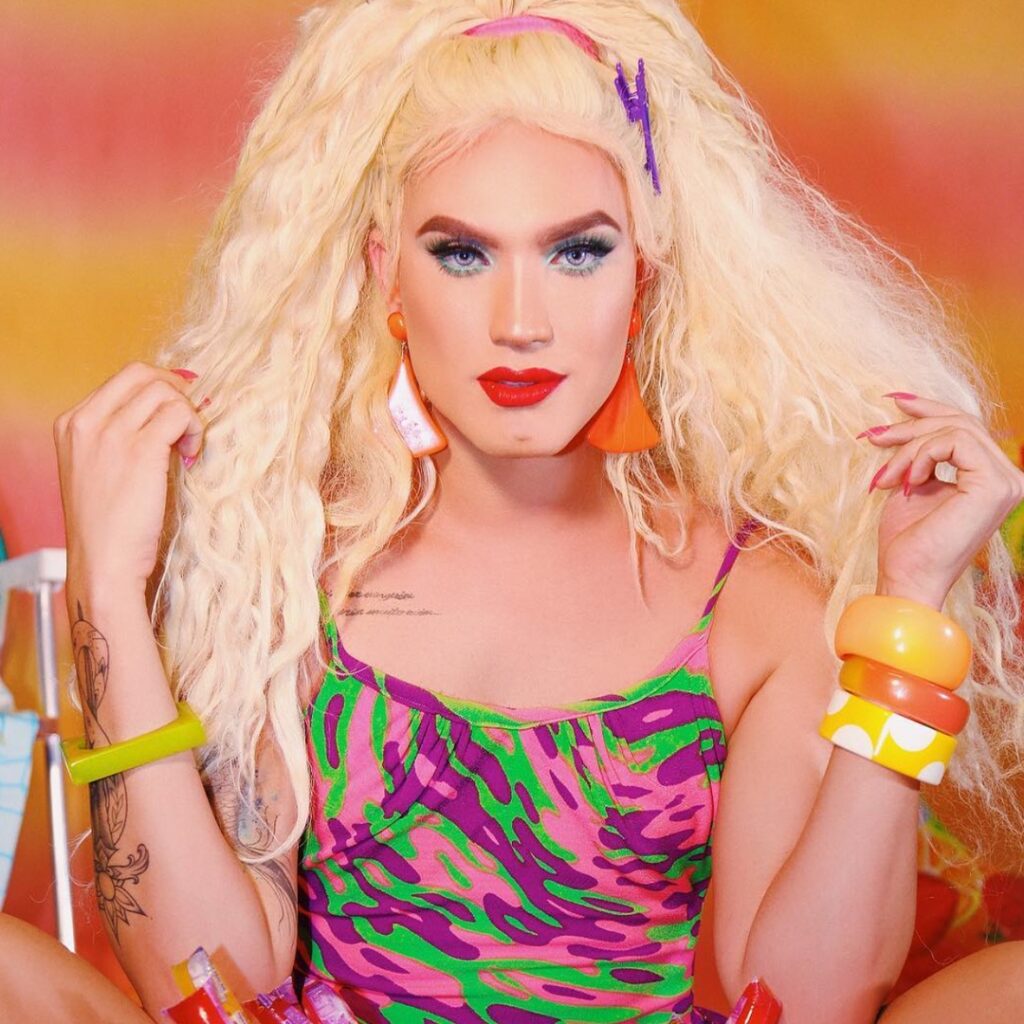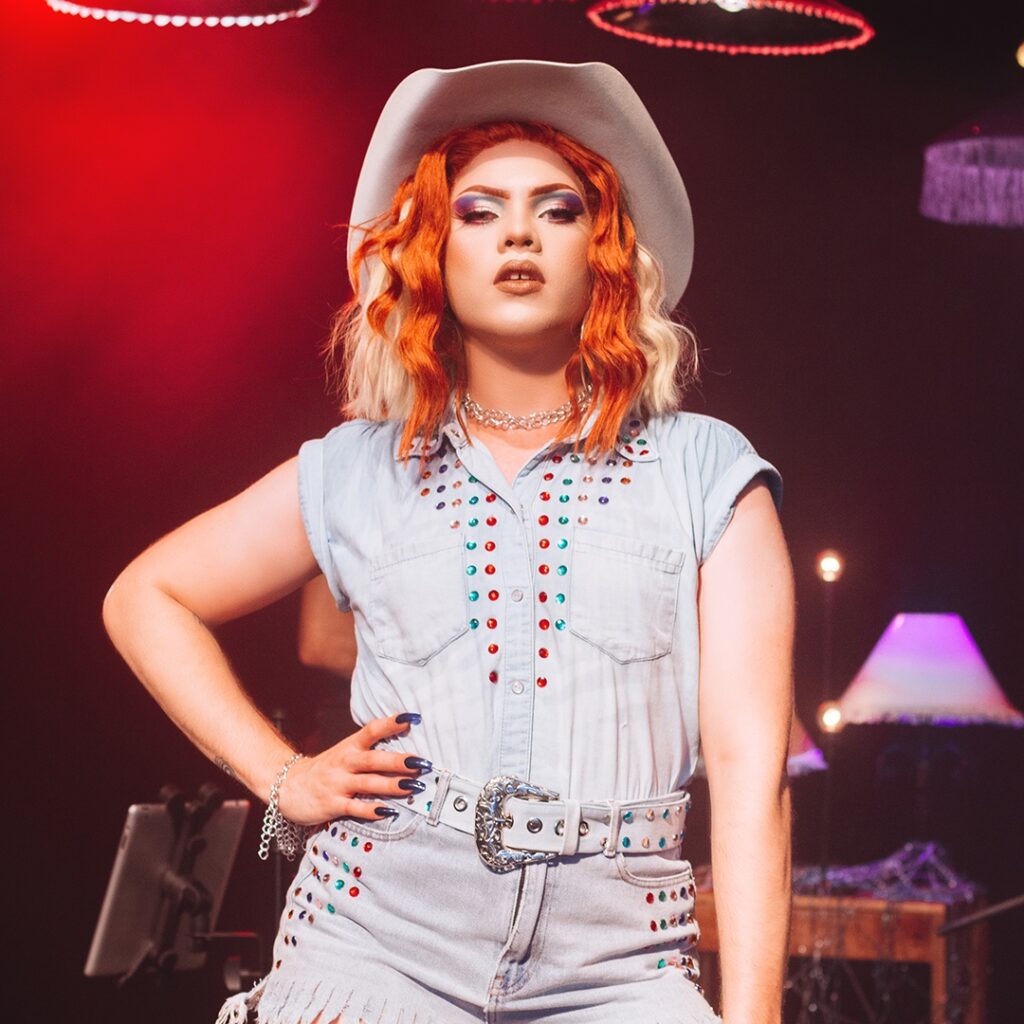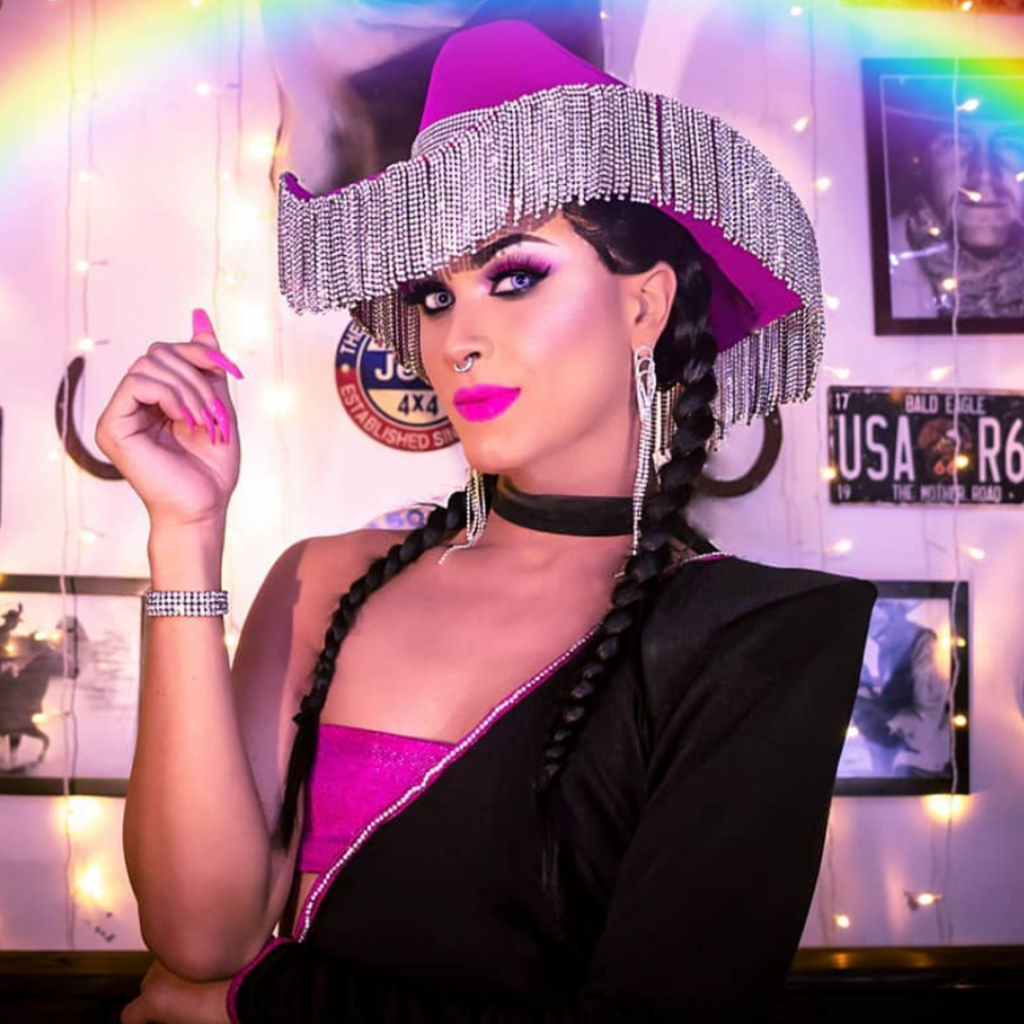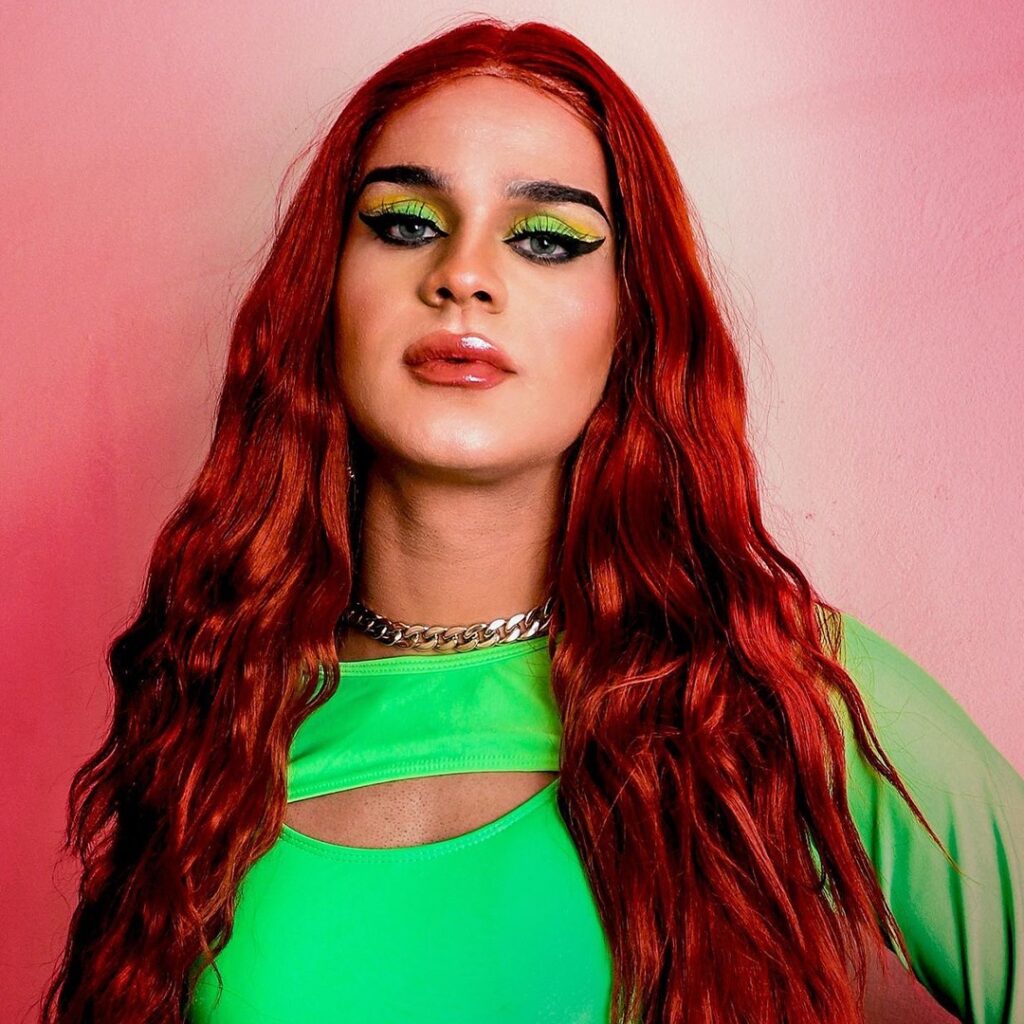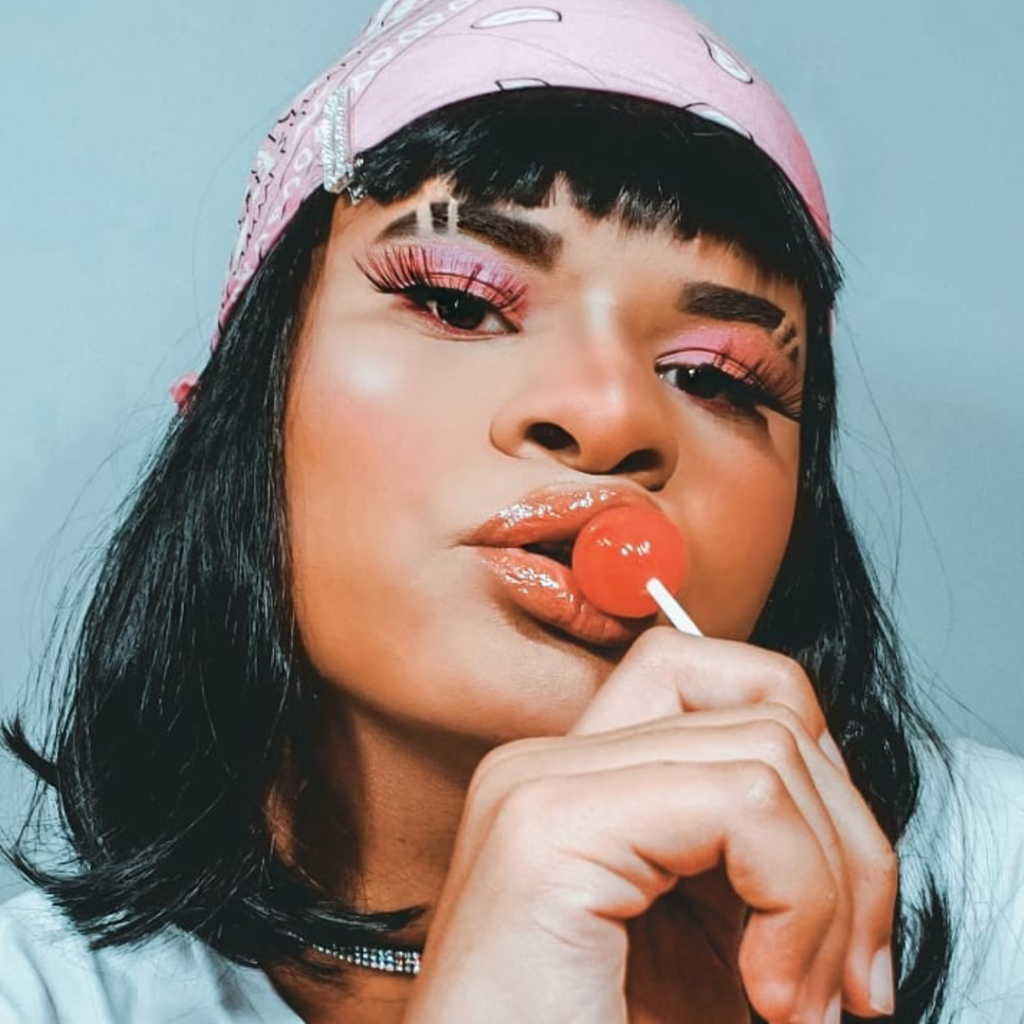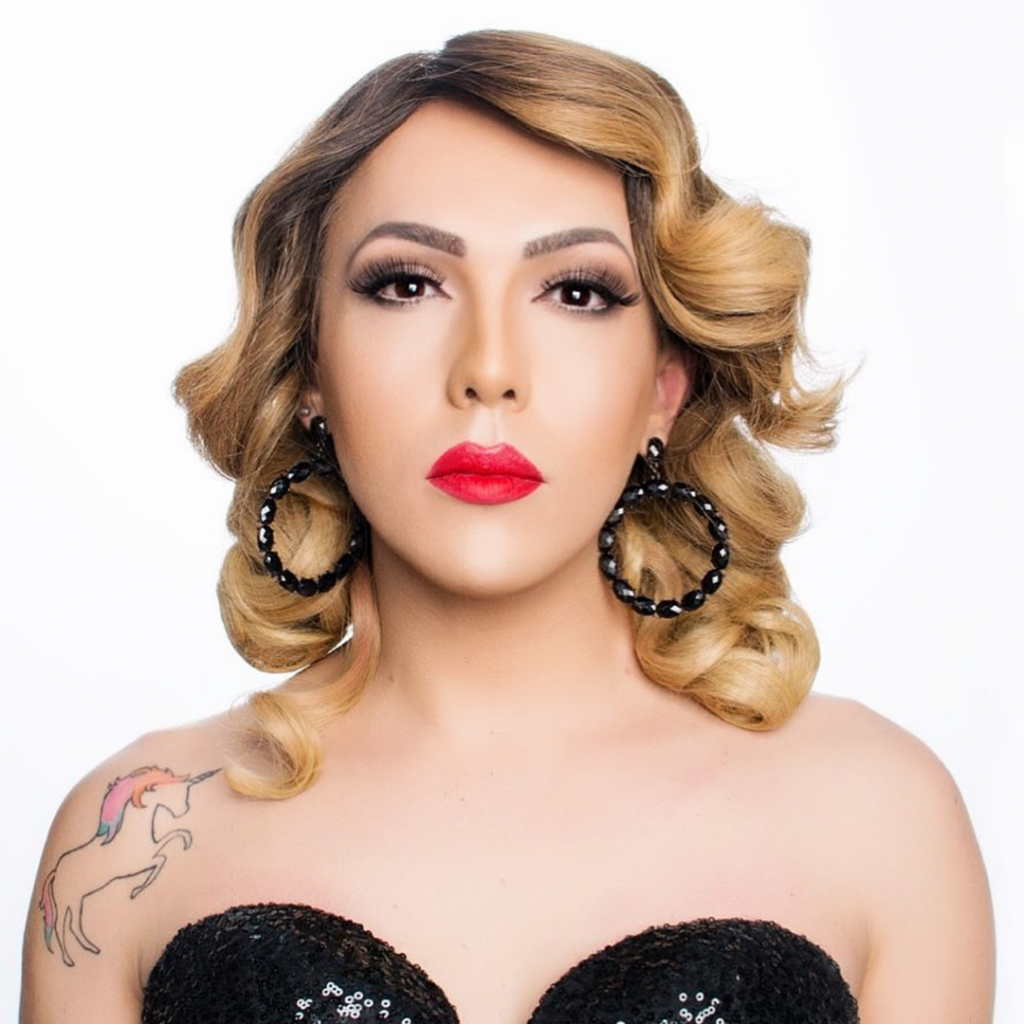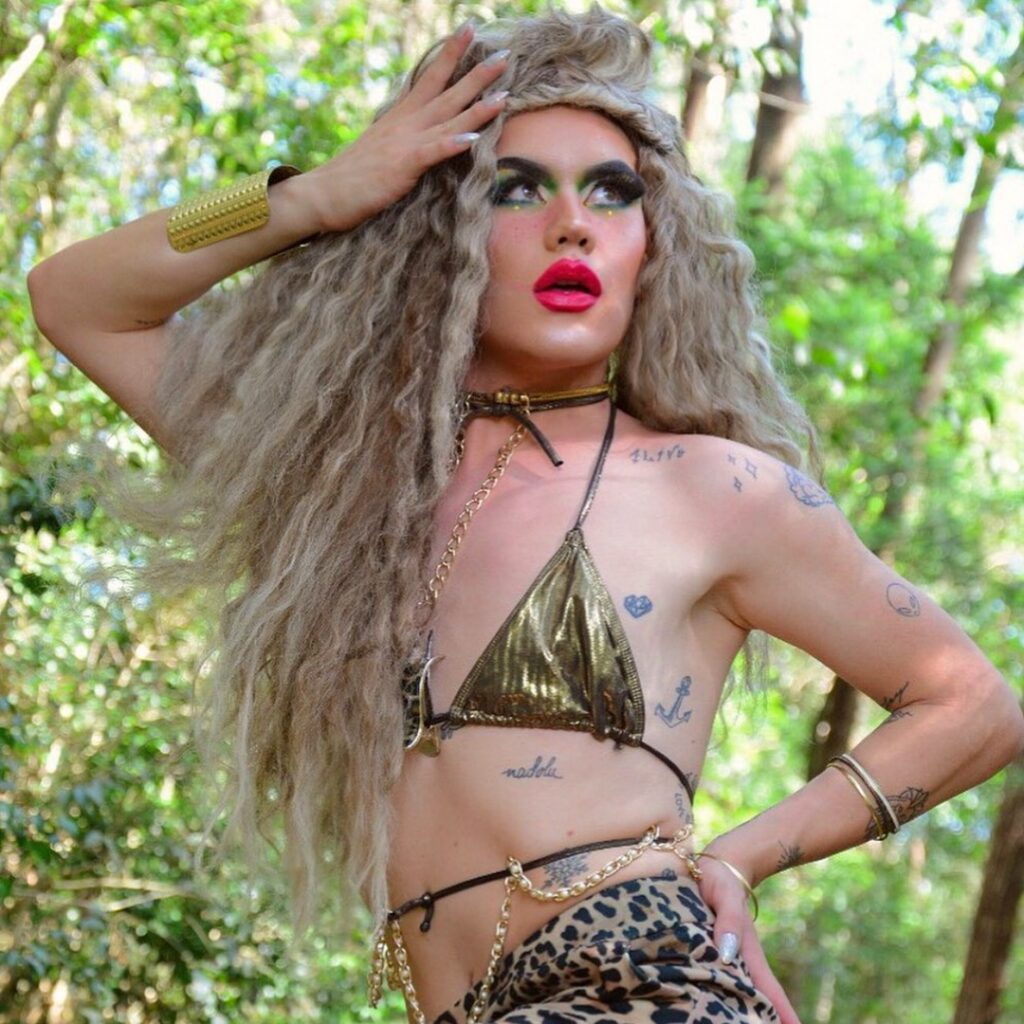Dive into Pasta Parisa’s fabulous closet and discover the inspiration behind 3 fashionable outfits. Stay seated to watch her rock them in her own at-home studio!
Tag: drag
and Gloria Groove by Rodolfo Magalhães @rodolfomagalhaes
From marginalised groups to national and international stars, Brazilian drag singers are opening doors within the music industry, breaking barriers, and conquering spaces unlike anywhere else in the world.
It’s difficult to start any conversation about Brazil’s drag queens without mentioning the one and only, Pabllo Vittar. She is far from being the first drag queen in Brazil but surely is the first to reach such great heights in her career, initiated with her 2015 single, ‘Open Bar’; a Brazilian version of Major Lazor’s song, ‘Lean On’. Pabllo’s hit has over 70 million views on YouTube and at the time, was even shared by Diplo, the original producer of ‘Lean On’.
In addition to winning the nation’s heart, Pabllo has started to gain international recognition in the past four years. She’s performed in Coachella and Europe Music Awards and participated in significant collaborations with artists such as Major Lazer alongside the queen of Brazilian Pop, Anitta, in the 2017 hit, ‘Sua Cara’. Recently, she even became the world’s most-followed drag queen on every social media channel, with a total of 22 million followers combined.
Pabllo Vittar, has paved the way for many other queens within the music industry; with Aretuza Lovi, Gloria Groove, Kaya Conky, Lia Clark and many others following right behind her. In 2020, Gloria won hit of the year for her single ‘Deve ser Horrível Dormir Sem Mim’ for Prêmio Portal Music BR awards and Lia Clark’s latest single, ‘Eu Viciei’, increased her number of unique listeners by 530% with over two million views on YouTube. These queens are revolutionising the Brazilian music industry, shifting the spotlight and bringing visibility to the LGBTQIA + community in a society still very much defined by machismo: “I will not be hypocritical and say that the prejudice is ending. But it is something we’re fighting against,” says Pabllo.
The Brazilian music scene may bring you a tropical breeze of Bossa Nova or the drums of Carnaval and Samba, but these genres just scratch the surface of what is a thriving and diverse music scene. Music is integral to Brazil’s national identity and society; as different people sought home throughout Brazil, they established different music styles, each accompanied by a unique form of dance. While drag queens are primarily represented in Brazilian Pop, they flaunt their talents within other music styles such as Forró, Funk and Sertanejo, the most listened to genre in the nation.
Now, without further ado, let us meet the phenomena of the Brazilian music industry-ladies and gentlemen, the queens who take composing, singing and performing to a whole new level!
Reddy Allor and Sabrina Angel the Queens of Sertanejo
These incredibly talented queens are best known to fans of Sertanejo, a type of music originating from the countryside of Brazil in the 1920s. Its lyrics spoke of life in the countryside and later developed into Sertanejo Universitário, a sub-genre focusing on young-adult life and care-free relationships. Despite the rise of feminejo, a term used to describe the increase in female singers within the genre, this is a field still very much dominated by men. So, you can only imagine the challenges Reddy and Sabrina have faced and continue to battle when building this path for other upcoming queens.
As Reddy says, “For existing as LGBTQ+, we already suffer prejudice with stares, jokes and worse, so, it is inevitable that being a drag queen in Sertanejo has made me go through several difficult situations.”
Reddy, who recently released her newest album, ‘ASCENSAO’, started her career at a young age. As early as 12 years old, she began singing professionally in a duo with her brother. She later developed her dragnejo (a term combining drag and Sertanejo) career around 2018 with her single ‘Tira o Olho’ and was the only drag queen in the Sertanejo market at that time. “What inspired me was the desire to feel included, because I always loved Sertanejo but I never felt represented,” she says.
Reddy often sings of self-identity and self-reflection such as in her song ‘Deixa Ela Voar’ which speaks of a broken relationship and of letting her go and liberating her smile. “What I feel and how I feel it, I have always expressed myself through music,” she says. For her, the art of drag challenges gender stereotypes, and when combined with music, “allows for the message to arrive faster and in a way that moves people to a point where we start questioning our own lives.”
When asked to describe the movement with one word, Reddy chooses ‘resistance’. “This evolution is certainly happening and will not pass as a moment. We are here to show our existence and above all, resistance, as people and artists who deserve their space in the industry just like any other.”
For Sabrina who recently released ‘Video Chamada’, their roles go beyond entertainment. “We are here to deconstruct and contribute to society,” she says. “Having names that represent the LGBTQIA + community present on TV programs and on the charts has a significant objective. It shows a large portion of the population what happens in a sector that until recently, was very segmented and viewed with disdain by society. After all, what we all want is respect, equal rights and representation. We want to feel included, and end prejudice once and for all.”
She reveals that producers and studios refused to record her songs and music clips. “When I would contact them introducing myself as a drag queen, they would increase the prices or say they had no available time slots. However, when I’d introduce myself without mentioning drag or anything related to the LGBTQIA+ community, I would find out that the price was four times lower and that they were available on the same day.”
For Sabrina, music allows her to learn and teach that drag queens, too, have their place and value in society as they do in the music industry. Her main goal with her art is to be happy. Secondly, she also wishes to touch people in some way. “When I realised that I could carry a message and be heard by uniting the two things I love, that is music with drag art, I had the certainty that this was my main way of contributing to our LGBTQIA+ community.”
A word that exemplifies the movement for Sabrina is ‘love’. “It is the love for our art, for our community and mainly for the desire and responsibility to make a difference in this society where the majority are sexist, transphobic, homophobic, and oppressive that we are increasingly producing music and clips, making our voices heard.”
Yara Aquino the Forró Diva
This Northeastern queen has recently entered the world of Forró, a popular type of music in the north of Brazil which originated in the end of the 19th century. The style is marked by the sound of the zabumba, a type of bass drum, and a combination of the triangle and accordion. It is represented by a dance between couples, who with bodies almost glued together, drag their feet on the floor.
Yara began her career only one year ago, mainly drawing inspiration from Pabllo Vittar, Gloria Groove and Lia Clark. Since, she has already released her first single, ‘YARA’, which tells a love story between her male alter ego and her drag persona being betrayed and manipulated by him; to later realising this and her journey overcoming it. Having grown up with the genre, Yara thanks it for moulding her into the person she has become; with every special moment in her life having a Forró soundtrack behind it. Even her name has references to Forró singers, Yara Tchê and Silvana Aquino.
For the future songs that Yara states are already written and ready to be released towards the end of this year, she hopes to convey the north-eastern culture in rhythm, aesthetics, and stories. “I have no interest in singing other genres, I want to bring and represent the northeast through Forró like the women I watched when I was a child, wanting to be them, to be on stage. And I hope I can make this dream come true.”
For this diva, the drag queens have arrived to completely change the Brazilian music industry. One word to describe this revolution is ‘innovation’. “I think that the drag singers are the future of music. They’re already shaping music both in its style and aesthetics, so for the future, drags in charge, always. I mean, they already are, but I would like to see more drags bringing new music and rhythms.”
Larissa Santel and Sarah Mitch Take Over Brazilian Pop
These drop-dead-gorgeous queens don’t go unnoticed when it comes to Brazilian Pop, a modern genre and important aspect of the Brazilian culture, popularising sounds and voices which were previously hidden in small niches.
For Larissa, who is soon to release her single at the end of May, Pop was where she found herself. Her eyes would shimmer while watching international Pop singers, hoping to one day, obtain the same success in Brazil. “I chose to work with Pop as it involves not only music but also dance, fashion and culture. It’s a genre that takes many musical styles from different regions to the public in a much more commercial way.”
She also says how the divas of Pop have always embraced the LGBTQIA+ community with Lady Gaga and ‘Born This Way’, a hymn for the drag community. Like many queens, she also praises Pabllo Vittar, Gloria Groove and Lia Clark for bringing visibility by making songs that extended beyond the community. “Drag art in Brazil is splendid, we have artists who overcome incredible barriers and I can’t wait for all of them to show their art to the world. And in the music industry, we already have incredible singers who unfortunately still do not have the space they deserve but are battling to achieve their place here in Brazil and in the world”. Larissa is doing just that, fighting for her art to be recognised, “We’re strong and we have to take every bump in the road with a smile and platform-15 high heels,” she says.
When it comes to Sarah, she knows the Pop industry from inside and out, having even been featured in legendary programs such as ‘Amor e Sexo’ from Rede Globo, a talk show with weekly guests who discuss topics and taboos related to love and sex. For her, the movement is surreal. “I come from a time when there wasn’t a place for drag and music. People thought I was crazy, wanting to sing live in the clubs 20 years ago! Then I saw Pabllo, and her success made me complete. Having this representation with such success, paved the way for a very relevant discussion in broad media channels. It’s surreal! It doesn’t matter the genre or theme of the songs, what matters is who is there appearing and singing them! This is very important for the LGBTQIA+ community. This is what really matters, besides putting everyone on the dance floor!”
Sarah always tries to convey a message in her music, be it profound or not. Her latest single, for example, ‘Janela’, talks about a personal loss. She also addresses those who simply seek “to dance”, for instance, with her 2013 song, ‘Bad Girl’.
Both queens, coincidently, chose the word ‘warriors’ to describe the drag singers changing the industry. “In addition to the successful drags, there are hundreds of invisible artists who fight for space every day, just like me!” says Sarah. Similarly, Larissa focuses on the strength and determination needed to enter an industry that remains very closed to anything other than the norm, one which heavily excludes the drag community.
Lilo, Feminism and Funk
Similar to Lia Clark, Aretuza Lovi and Kaya Conky, Lilo is making history when it comes to Brazilian Funk. With its roots in the peripheries of the south zone of Rio de Janeiro, Funk began in the 1950s inspired by USA’s Rhythm and Blues and Gospel. The genre is characterised by its unique beats and has been a medium for many marginalised voices to represent themselves, especially their lives in the favelas. Funk has long been stigmatised due to its controversial lyrics which tend to normalise sexism, ostentation culture, crime and even rape culture. However, the rise in drag queens within the industry is a clear sign of its evolvement.
Lilo started her singing career about five years ago with her first Pop/House single, ‘I Want You’ in 2018. She recently got into Funk with her latest song, ‘Coitado’, which brings together a new sub-genre of Funk called Brega Funk and Funk Pop. Similar to MC Pocah’s, ‘Não Sou Obrigada’, her new single, which translates to “poor you,” talks about unfaithfulness, moving on quick and realising ones’ value, showing in the end, that it was his loss. The theme of women empowerment and revenge is extremely prevalent within the feminist movement in Funk, changing traditional roles present in Funk and society of women as submissive, also representing an unruliness and transgression from normative discourses on gender and sex.
For Lilo, it’s more than just the culture these queens bring, noting that if Funk is already marginalised in every aspect, imagine drag within Funk. “We break gender and sexuality paradigms and stereotypes with our art, showing different ways of doing gender. Little by little, we are conquering spaces and a deserved recognition. We already have big names, artists that certainly opened doors for new ones and so on.”
Finally, when asked to describe these queens in one word, she chooses ‘unique’. “The future is already here! We’re already living it, and the industry needs to adjust to it; be more representative, more inclusive. I have a lot of faith that this will become real, drags in mainstream music, on the radio, on open TV, series, films, everywhere.”
